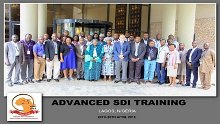The SDI education surveys link resources to results and help shift the policy dialogue towards quality and results by focusing on inputs, provider effort and knowledge. They help build the capacity of local organizations in research and policy analysis. The SDI model is to contract, train and empower local organizations to implement the surveys and conduct the analysis, while also offering data analysis training workshops to researchers, medical statisticians, policy analysts, and civil society activists.
For a country government, the SDI offers the chance to measure multiple aspects of human capital and to compare across the education sectors. The survey provides detail that cannot be seen from routine reporting and which can guide future policy decisions.
In Mozambique, a national campaign against teachers’ absence was instituted after the launch of the 2014 SDI Education Report. Likewise, in the Democratic Republic of the Congo, 2019 education SDI results are being leveraged in several ways to inform and strengthen the free primary education policy and the Bank’s operations and dialogue.
Download SDI Education Data: SDI Education Microdata Library

